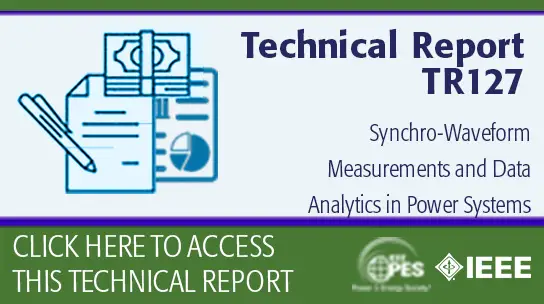-
Members: FreePES
IEEE Members: $25.00
Non-members: $40.00Pages/Slides: 55
Panel
12 Sep 2022
This panel session contains the following presentations:
1. Real-Time Simulation-Based Energy Management of Airport Microgrid for Electric Aircraft
Future airport dc microgrid system for electric aircraft with energy management strategies and the power control method was put forward in this paper, in which the upper control layer with calculated robust optimization of energy management strategy for the optimal scheduling decisions and the lower control layer for transient power control for power load are complimented. The optimal power scheduling, minimization of Dc micro grid economic operation and harmful gas emissions targets can be achieved. The power control layer provides sufficient voltage and power response speed for the airport electrical load. The proposed control strategy is applicable to the DC microgrid of electric aircraft airport which contains photovoltaic and other renewable energy generation system and energy storage systems and can be interacted with the public power grid. Based on the Typhoon HIL 604 real-time simulator, the real-time microgrid simulation model of airport microgrid including photovoltaic, fuel cell, electric energy storage and other renewable energy units and airport power load was developed. RT-LAB 5700 platform was used to realize the microgrid power controller and energy management optimization strategy solution. Finally the real-time simulation platform of airport microgrid for electric aircraft was constructed to realize the verification and evaluation of the proposed energy management strategy.
2. Online Scheduling of PV and Energy Storage System Based on Deep Reinforcement Lea
The Photovoltaic and Energy Storage System (PV-ES), as a typical microgrid, is increasingly become an important component of smart grid. Through effective ES energy managing, the PV-ES can effectively realize economic benefits, and provide power support for distribution networks (DN). However, the intermittency of PV power and the higher fluctuations of load power bring great uncertainty to the optimal scheduling of PV-ES. The optimality of traditional optimization methods for online scheduling can be insufficient because of the modeling complexity, strong conservatism, and heavy reliance on the prediction accuracy. To address these issues, this paper proposes an online ES scheduling algorithm for PV-ES based on deep reinforcement learning (DRL). Taking the system economic cost as the operation objective, DRL uses high dimensional PV-ES measurement data to directly drive the continuous action control of the energy storage, and can flexibly adapt to uncertain environments. Test results of a typical PV-ES show the superiority and effectiveness of this method.
3. Dynamic Scheduling Model of Distributed Energy Based on Improved LSTM Algorithm
Aiming at the problem that the grid planning lag causes the on-grid load of new energy to be blocked, and the proportional power rationing method results in poor fairness of the energy market, this paper proposes a dynamic scheduling model of on-grid load of new energy power plants based on the improved LSTM algorithm. The model firstly extracts the effective load law from the historical load through the adaptive threshold change by using the improved Wiener filter algorithm according to the seasonality, randomness, intermittency and other characteristics of photovoltaic and wind power generation; and then according to the filtered load The forgetting gate of LSTM is improved according to the law, and the accuracy of new energy load prediction is improved by the method of "selective memory"; finally, ADMM is used to dynamically schedule the on-grid load of new energy power plants. The experimental results show that the method in this paper improves the photovoltaic load prediction accuracy by 56.5% and the power generation load prediction accuracy by 18.9%, and improves the fairness of the energy market by 27.4% under the dynamic dispatch mechanism.
1. Real-Time Simulation-Based Energy Management of Airport Microgrid for Electric Aircraft
Future airport dc microgrid system for electric aircraft with energy management strategies and the power control method was put forward in this paper, in which the upper control layer with calculated robust optimization of energy management strategy for the optimal scheduling decisions and the lower control layer for transient power control for power load are complimented. The optimal power scheduling, minimization of Dc micro grid economic operation and harmful gas emissions targets can be achieved. The power control layer provides sufficient voltage and power response speed for the airport electrical load. The proposed control strategy is applicable to the DC microgrid of electric aircraft airport which contains photovoltaic and other renewable energy generation system and energy storage systems and can be interacted with the public power grid. Based on the Typhoon HIL 604 real-time simulator, the real-time microgrid simulation model of airport microgrid including photovoltaic, fuel cell, electric energy storage and other renewable energy units and airport power load was developed. RT-LAB 5700 platform was used to realize the microgrid power controller and energy management optimization strategy solution. Finally the real-time simulation platform of airport microgrid for electric aircraft was constructed to realize the verification and evaluation of the proposed energy management strategy.
2. Online Scheduling of PV and Energy Storage System Based on Deep Reinforcement Lea
The Photovoltaic and Energy Storage System (PV-ES), as a typical microgrid, is increasingly become an important component of smart grid. Through effective ES energy managing, the PV-ES can effectively realize economic benefits, and provide power support for distribution networks (DN). However, the intermittency of PV power and the higher fluctuations of load power bring great uncertainty to the optimal scheduling of PV-ES. The optimality of traditional optimization methods for online scheduling can be insufficient because of the modeling complexity, strong conservatism, and heavy reliance on the prediction accuracy. To address these issues, this paper proposes an online ES scheduling algorithm for PV-ES based on deep reinforcement learning (DRL). Taking the system economic cost as the operation objective, DRL uses high dimensional PV-ES measurement data to directly drive the continuous action control of the energy storage, and can flexibly adapt to uncertain environments. Test results of a typical PV-ES show the superiority and effectiveness of this method.
3. Dynamic Scheduling Model of Distributed Energy Based on Improved LSTM Algorithm
Aiming at the problem that the grid planning lag causes the on-grid load of new energy to be blocked, and the proportional power rationing method results in poor fairness of the energy market, this paper proposes a dynamic scheduling model of on-grid load of new energy power plants based on the improved LSTM algorithm. The model firstly extracts the effective load law from the historical load through the adaptive threshold change by using the improved Wiener filter algorithm according to the seasonality, randomness, intermittency and other characteristics of photovoltaic and wind power generation; and then according to the filtered load The forgetting gate of LSTM is improved according to the law, and the accuracy of new energy load prediction is improved by the method of "selective memory"; finally, ADMM is used to dynamically schedule the on-grid load of new energy power plants. The experimental results show that the method in this paper improves the photovoltaic load prediction accuracy by 56.5% and the power generation load prediction accuracy by 18.9%, and improves the fairness of the energy market by 27.4% under the dynamic dispatch mechanism.
Chairs:
Dr Zaipatimah Ali


